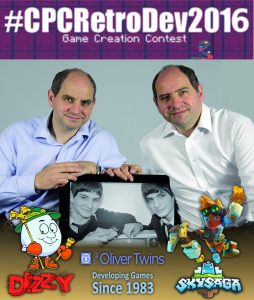After the awesome success of the last CPCRetroDev last year it is time for a new game competition in 2016, isn’t it? This year there are even higher prices, which you can win with your game in different categories. As usual the competition is organised by the University of Alicante / Spain and aims to award the best and creative game developers, who create a game for an unmodified Amstrad CPC 464. The deadline for this years competition is the 26th October 2016, 23:59h (CEST), so don’t waste any time and start the development of your awesome game.
If you are not familiar with development for the Amstrad CPC, you can have a look at the CPCtelera game development kit, the great programming tutorials on CPCMania, the CPCrslib programming library or cpcitor’s development toolchain. There is also a category for Locomotive BASIC programs and you can find help in the CPCWiki forums.
You can achieve the following awards (all in all about 1.050 EUR!!!):
Special awards
PRO category
- 300€ – Best game
- 150€ – Second best game
- 75€ – Third best game
BASIC category
- 100€ – Best BASIC game
- 50€ – Second best BASIC game
…and there will also be a physical cassette edition with all 2016 games, too.
You can get more information about the competition rules and about the competition itself on the CPCRetroDev 2016 homepage. Be sure to participate and bring your creative game ideas to the Amstrad CPC.


